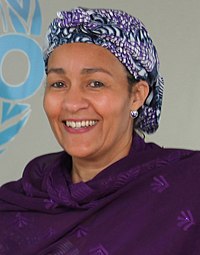The African continent has been ranked second in the number
of hungry people in the world which the United Nations (UN) said was 815
million, reports NaijaAgroNet.
The UN in its latest hunger and food security key numbers
made available to NaijaAgroNet, which has overall number at 815 million, saw
Asia continent with 520 million, over 100 per cent of African quota.
Also, NaijaAgroNet gathered that in the top three continents
in the hungriest people in the world included Latin America and the Caribbean
with 42 million.
The global hungry population as shared in percentage, NaijaAgroNet gathered showed that Asia has 11.7 per cent; Africa has 20 per
cent with eastern Africa lone scoring 33.9 per cent, while Latin America and
the Caribbean got 6.6 per cent.
NaijaAgroNet further gathered this was the first time that
UNICEF and WHO join FAO, IFAD and WFP in preparing The State of Food Security
and Nutrition in the World report. This change reflects the SDG agenda's
broader view on hunger and all forms of malnutrition.
The UN Decade of Action on Nutrition, established by the
General Assembly, is lending focus to this effort by motivating governments to
set goals and invest in measures to address the multiple dimensions of
malnutrition.
The State of Food Security and Nutrition in the World 2017
has been re-geared for the SDG era and includes enhanced metrics for quantifying
and assessing hunger, including two indicators on food insecurity and six
indicators on nutrition.
Remmy Nweke/ED, Ops
... Linking agrobiz, sustainable environs, people & technology










